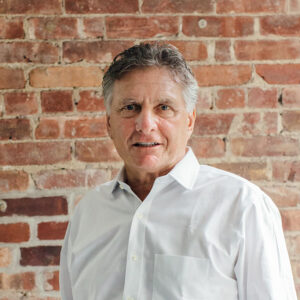Sloane: American Public Education Is Broken. In the Absence of Political Leadership, 4 Ways Philanthropy Can Boldly Step Up

Get stories like this delivered straight to your inbox. Sign up for The 74 Newsletter
The absence of political leadership in finding bold solutions to the entrenched failure of our school system demands that individuals and philanthropic organizations step up. Credit Michael Bloomberg for doing so when he announced a $750 million commitment to charter schools and said what everyone knows but few will acknowledge: American public education is broken.
Here are four ways for philanthropy and individuals to boldly lead the way:
1 Track real impact
In all we do as funders, we should define the impact that any initiative should have in concrete terms, and in our grantmaking, we should require that organizations project short (six-month) and long (one- to three-year) impacts that can be measured by recognized standards. Popular but subjective methods like satisfaction surveys or metrics that are not based on well-recognized outcome measures should not be acceptable to funders.
At Heckscher, we require grant applicants to complete a logic model to help the organization and our foundation understand what the participants in the program will be expected to accomplish with our grant. Each grantee must state not just what it will do with the money, but also, more importantly, what concrete, measurable goals the program participants — those the grantee is serving – will accomplish in the short and long term during the life of the grant. Things like: Students will make three semesters worth of reading gains through the summer intervention, or at least 85 percent of students will pass a recognized proficiency exam after the conclusion of each program cycle. And we do not accept models that do not translate into accepted measures like Common Core standards in, say, reading or math.
2 Find long-term solutions that do not rely on stimulus dollars
Far too often, crises are exploited to advocate for and institute short-term policies in the expectation that they will become permanent. Too many organizations are doing this with emergency stimulus funding, using the money to add overhead that in two years will run out, absent some Disneyland scenario of it becoming permanent. This is not just bad financial planning; it is toying with the lives of real people whose positions will be in peril when the money is no longer there to pay them.
Funders need to support programs and organizations that adopt long-term budgeting strategies that do not assume the one-time impact of stimulus money will become permanent, and instead use stimulus funds to invest in infrastructure like training and technology.
At Heckscher, we ask that question — and more. We ask how grantees are budgeting without those dollars in the future. In New York City, for example, a savvy intern of ours prepared a guide to track the stimulus money flowing into each individual school for targeted purposes like mitigating literacy learning loss. We shared that guide with other funders and have used it to ask specific, directed questions about where the money went.
3 Support education alternatives
No one can seriously doubt that alternatives like charter and private secular schools have made a difference in the lives of poor kids of color. Many charters and secular schools remained open during the pandemic, and their children have not suffered the same learning losses as students whose schools closed.
Partnership Schools, which we support, operates seven elementary schools serving communities in New York City with historic inequities, responded to the pandemic by providing a safe, full-time, in-person educational option for any family seeking it from day one of the 2020-21 school year. It saw a 14 percent year-over-year enrollment increase, and its students beat pre-pandemic national averages on reading and math tests in every grade.
To help diagnose developmental dyslexia, Heckscher has piloted implementation in selected charter schools of an early screening app called EarlyBird, which brings together all the relevant predictors of reading in one easy-to-administer assessment and provides teachers with customized action plans and resources for each student.
Our support of catalytic solutions to education problems has included Classical Charter, KIPP, Coney Island Prep, Icahn, MESA, Success Academies, Uncommon and Achievement First. We most recently supported the expansion of Achievement First’s The Navigator Program, which provides intensive coaching and tools that enable district and charter schools to effectively replicate its highly successful curriculum, which specifically addresses unfinished learning as a result of school closures.
4 Promote mentoring – it matters
The single best investment anyone can make in philanthropy is to support mentoring initiatives. It is also the most important action anyone can take as an individual.
Most recently we are investing in a unique mentoring concept that will involve corporate leaders acting as mentors to underserved youth in NYC high schools along with two to three other company professionals at various levels, backgrounds and experience. The involvement of the seniormost business leaders in a pod encourages other employees to become involved, greatly expanding the program and, in essence, building a mentor program from the top down.
Everyone has time for a text, email or phone call, and that is most often what a mentee needs: someone to be available and responsive. The essence of a mentorship is constancy and trust. It’s about providing advice and stability in a world that often lacks both. Everyone reading this has years of experience and a perspective that helped them get to where they are today. That will be plenty for starters.
Peter Sloane is chairman and CEO of Heckscher Foundation for Children.
Get stories like these delivered straight to your inbox. Sign up for The 74 Newsletter

;)
